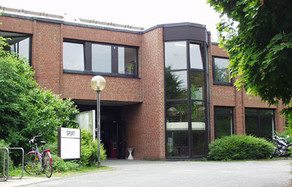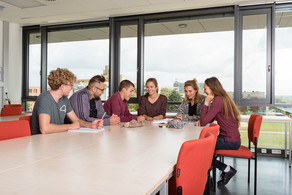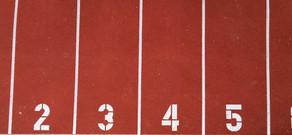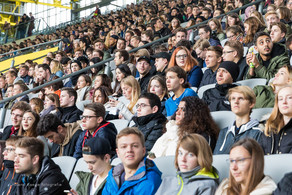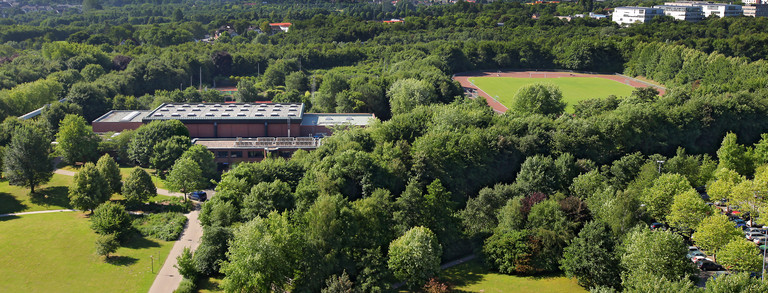Goals, concepts and effects of sport-related integration work from the point of view of the functionaries of the DOSB program "Integration through Sport".
| Project Management: | Prof. Dr. Ulrike Burrmann; Prof. Dr. Sebastian Braun; Dr. Tina Nobis (HU Berlin); Prof. Dr. Michael Mutz (Georg-August-Universität Göttingen). |
| Collaborators: | Jennifer Schmitz; Dajana Biehl; Bernhard Heester; Robin Mengler; Anne Rübner |
| Client: | DOSB, BAMF |
| Duration: | 2013 |
Contents and goals
The "Integration through Sport" (IdS) program, which is implemented under the coordination of the German Olympic Sports Confederation (DOSB), now looks back on a history of more than 20 years. Not least in view of the program's wide reach, broad financial support and the current social and societal significance of the integration debates, an extensive evaluation of the program was conducted by the University of Potsdam between 2007 and 2009. On the basis of the final report submitted by the evaluation group (cf. Baur, 2009), recommendations for action were then derived and implemented - in cooperation with the DOSB, BMI and BAMF, and with the involvement of the program managers of the federal states and accompanied by the DOSB's Leadership Academy.The broad-based evaluation by Baur (2009) as well as the program developments that were subsequently set in motion form an authoritative point of reference for the renewed evaluation of the IdS program in 2013. Compared to the earlier evaluation, however, at least three aspects should be highlighted in advance:(1) "Smaller" evaluation study. The project duration was comparatively tight with just under three quarters of a year from spring to winter 2013. In this respect, on the one hand, the objectives and the methodological design of the present evaluation study were from the outset much "narrower" than in the evaluation study from 2007 to 2009. On the other hand - and closely related to this - the scope of the results report was also set at a limited number of pages. (2) University diversity. In contrast to the study by Baur (2009a), the renewed evaluation was entrusted to several universities - the TU Dortmund University, the Humboldt University of Berlin and the Georg August University of Göttingen - in the form of a collaborative project. This not only entails diverse perspectives on the topic, which are always profitable for an empirical study. Despite all attempts at "smoothing", different "handwritings" cannot completely disappear from the report. In this respect, it should be noted at this point that the working group of the Humboldt University of Berlin is responsible for chapter 5, the University of Göttingen for chapter 6 and the TU Dortmund University for chapter 7. (3) Personnel "size". The cooperation of the three universities and the resulting differentiation into three evaluation groups working closely together at the various locations necessarily meant that a relatively large number of people were involved in this evaluation study. This includes not only the authors, but also numerous student assistants who contributed significantly to the success of the study during data preparation. In this respect, we would like to thank Valeska Díaz Soto and Ulrike Kühn (HU Berlin), Dajana Biehl, Katrin Brandmann, Bernhard Heester, Robin Mengler and Jennifer Schmitz (TU Dortmund) as well as Paul Fischer and Jan Mehlberg (Georg-August-Universität Göttingen) for their valuable support of the project.
Burrmann, U., Rübner, A., Braun, S., Nobis, T., Langner, R.,Mutz, M., Marquez Lopez, A. & Rickert, M. (2014). Goals, concepts and effects of sport-related integration work from the perspective of the functionaries of the DOSB program "Integration through Sport". Unpublished final report. TU Dortmund, HU Berlin and Georg-August-Universität Göttingen.



